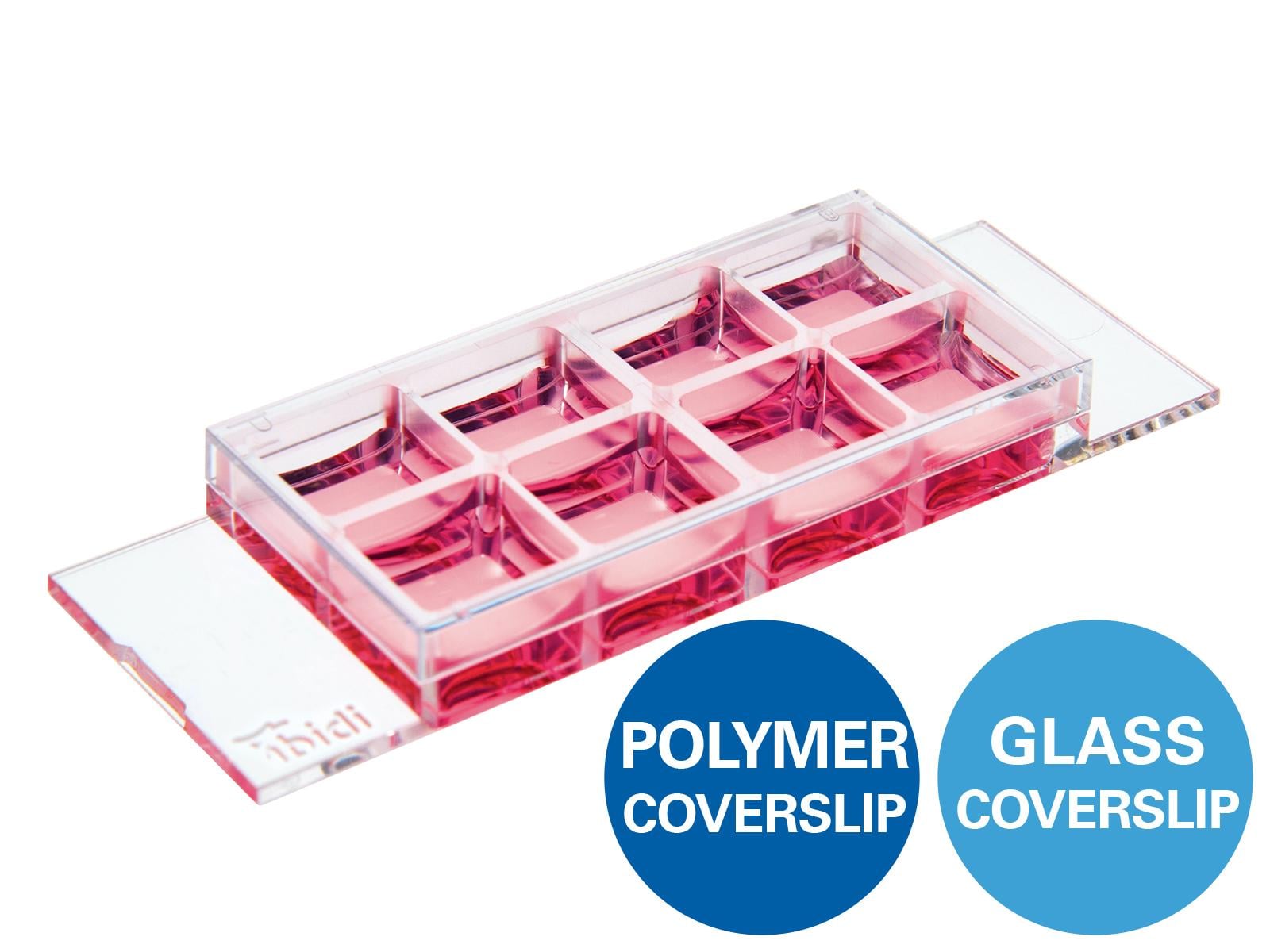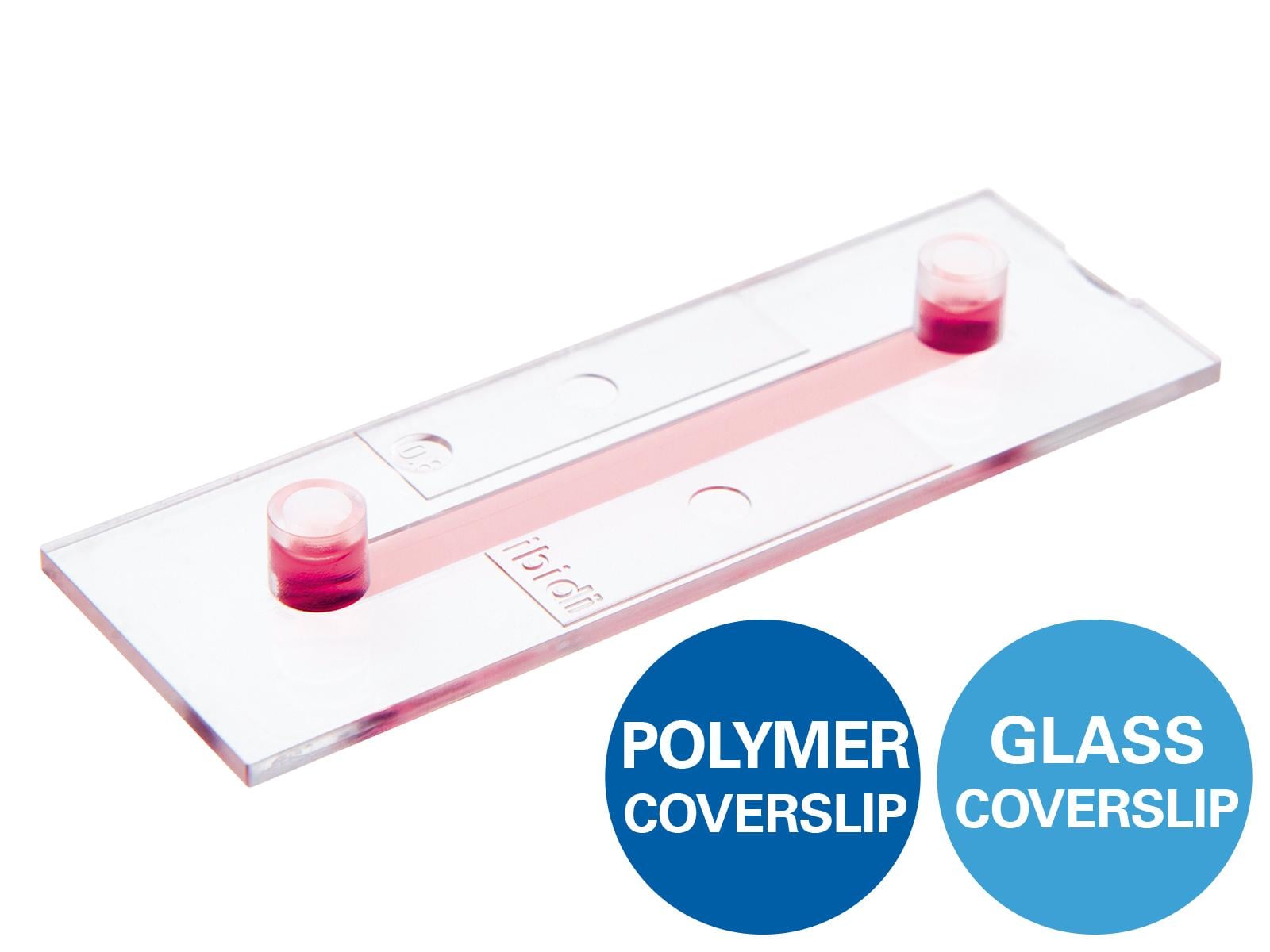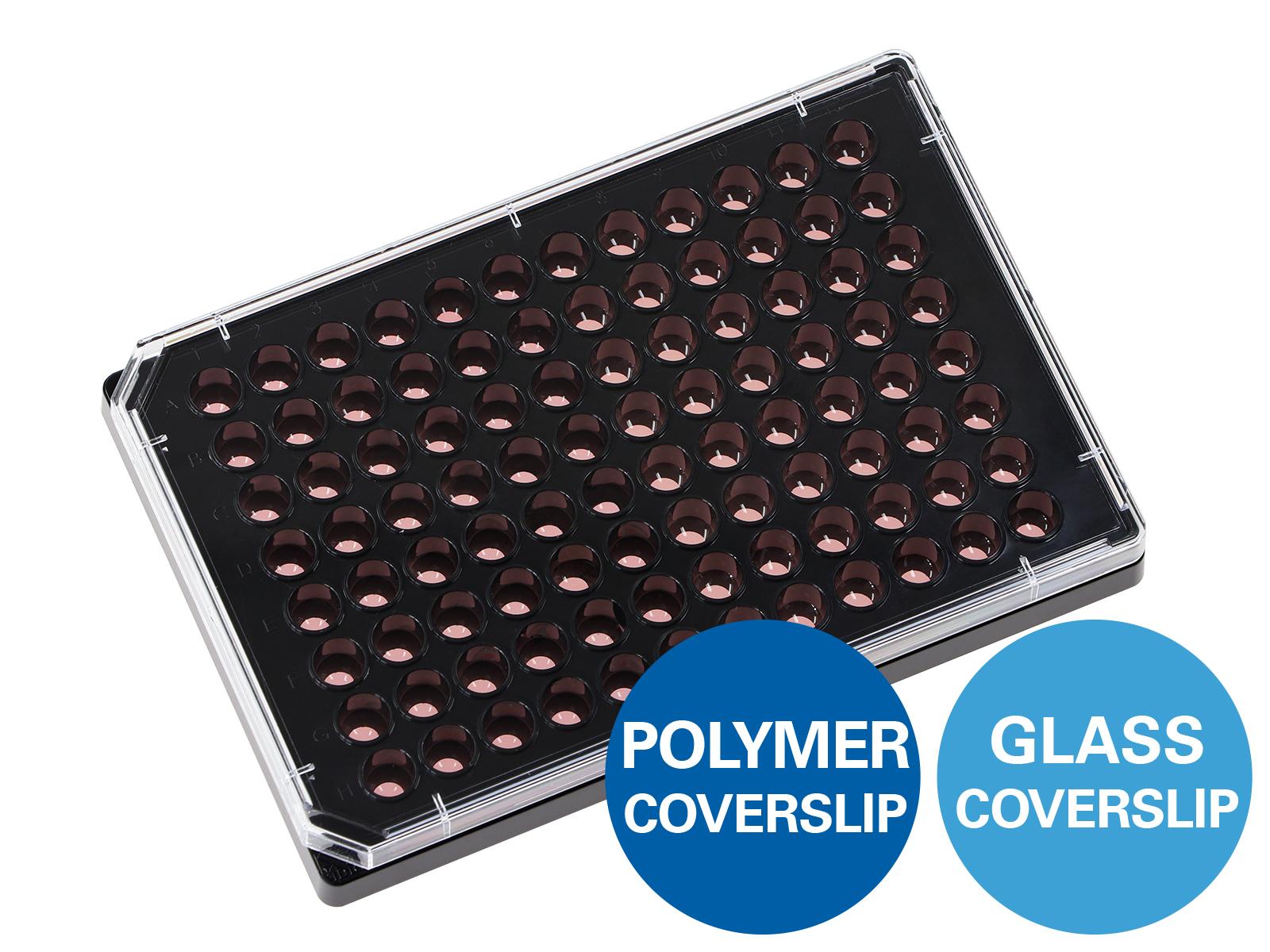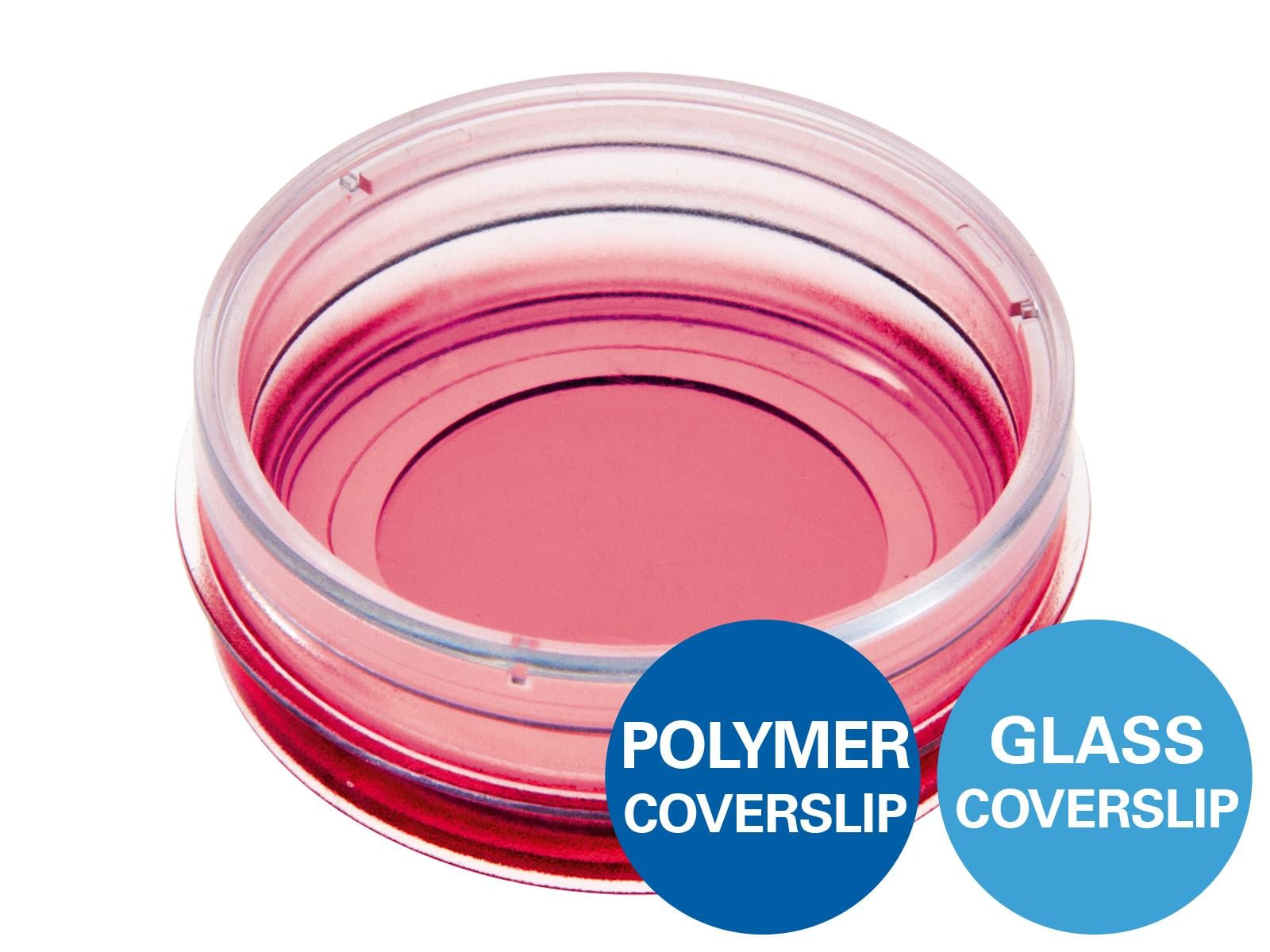From a Logic Gate for Ultrafast Electronics to Miniaturized Optical Data Links—ibidi Sponsors the Nano Innovation Award 2022
>> Pressemitteilung auf Deutsch lesen
The LMU Center for NanoScience and four spin-off companies jointly honor innovative PhD students with the Nano Innovation Award 2022.
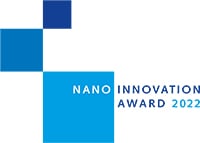
Munich, September 1, 2022—Three PhD students from Erlangen, Würzburg, and Munich were honored with this year’s Nano Innovation Award. The prize for innovative research in application-oriented nanosciences, which is endowed with a total of 9,000 €, was announced in Bavaria and awarded by a jury of experts from industry and science.
The Nano Innovation Award focuses on innovation and application potential, in contrast to most science prizes, which honor excellent results in basic research. Since 2015, the prize money has been donated by four successful Center for NanoScience (CeNS) spin-offs, which are directly linked to the idea of the Nano Innovation Award through their own company history. The companies attocube systems AG, ibidi GmbH, Nanion Technologies GmbH, and NanoTemper Technologies GmbH have awarded talented and imaginative young scientists whose results are not only of interest for basic research, but at the same time promise novel technological applications.
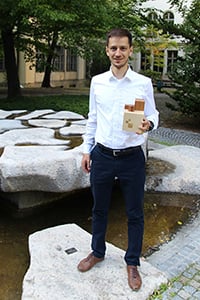
The first prize went to Tobias Boolakee from Friedrich-Alexander-University Erlangen. Logic gates that switch binary signals 0 or 1 by using Boolean functions are a fundamental component of any computer architecture. Today's electronic devices are limited in their clock speed primarily by the speed of capacitive signal propagation, and hence achieve clock rates of 1-10 GHz. Working in Professor Peter Hommelhoff’s group, Tobias Boolakee has now, for the first time, demonstrated a gate for extremely fast electronics based on a deep understanding of the physics in graphene and in graphene-gold interfaces when driven by ultrashort laser pulses. Controlling electrical signals with light could make computational operations of future computers at least ten thousand times faster than they are now—the goal of petahertz or light wave electronics. The work of Tobias Boolakee and his collaborative partners at the University of Rochester lets the vision of ultra-fast computers move a little closer.
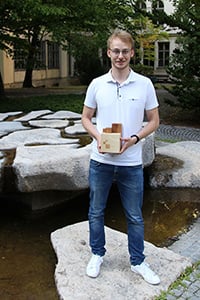
The jury awarded the second prize to Maximilian Ochs from Julius-Maximilians-University of Würzburg. Information processing in computers is carried out by electronic circuits that can be miniaturized down to the nanometer range. The transmission of information over long distances, by contrast, is happening via photons in optical fibers where the wavelength of the light hinders miniaturization. Miniaturized optical data links would be a great help in overcoming the bandwidth bottleneck that occurs in modern computer chips. In his work, Maximilian Ochs developed an electrically-driven plasmonic Yagi-Uda nanoantenna that can be used as a miniaturized electron-photon converter, emitting photons in a well-defined, directional beam once excited by a tunneling electron. He has thus been able to show that it is possible to build extremely small electrically-driven photon sources and simple photon processing circuits that are directly connected to a nanoelectronic system, while maintaining the same level of miniaturization.
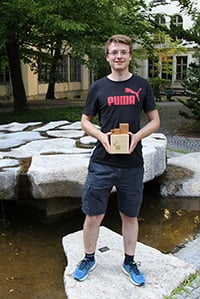
Third place went to Tim Schröder of LMU Munich. With his work in Philip Tinnefeld's group, he succeeded in overcoming previous limitations of fluorescence correlation spectroscopy (FCS). To do so, he elegantly combined fluorescence lifetime information with intensity correlations. His ideas can be easily implemented in laboratories that use FCS in combination with time correlated single photon counting. In a collaborative project with GATTAquant GmbH, Tim Schröder developed nanobeads with highest brightness and maximum signal homogeneity (which were then named GATTA beads). This work will be of practical use to a broad scientific community, as well as to the drug discovery community that uses FCS to find binding partners.
"The formation of Nanion Technologies 20 years ago has been strongly supported by the entrepreneurial spirit of CeNS. We feel that CeNS, with its interdisciplinary communicative culture, is a very important community that helps to transfer excellent scientific research into successful business stories. The Nano Innovation Award is honoring the same thing: The transformation of scientific findings into real world applications. We were once again impressed by the variety of this year’s applications—and congratulate all winners and participants." says Michael George, jury member and CTO Nanion Technologies.
Image:

https://ibidi.com/img/cms/about_us/press/ibidi_PR_2022_08_CeNS_Award.jpg
About the Center for NanoScience (CeNS) – www.cens.de
The Center for NanoScience (CeNS) is a scientific institution at LMU Munich that promotes and coordinates interdisciplinary research in the field of nanoscience. CeNS spans various disciplines such as physics, chemistry, biochemistry, and pharmacy. In addition to LMU research groups, CeNS also brings together groups from TU Munich, the Max Planck Institute for Biochemistry, and other institutions in the Munich area.
About ibidi GmbH – ibidi.com
ibidi GmbH, located in Gräfelfing near Munich, Germany, is a leading supplier of functional cell-based assays and products for cell microscopy. The ibidi range of products offers solutions for classic cell culturing, and also complex assays (e.g., angiogenesis, chemotaxis, and wound healing). Their products help facilitate an understanding of the development of various diseases and related therapies. ibidi’s customers are working in scientific institutions, industrial pharmacology, and biotechnology. Technology development at ibidi is supported by the BMBF (Bundesministerium für Bildung und Forschung). The products are sold to customers worldwide.
For further information please contact:
Dr. Susanne Seifert
ibidi GmbH
Lochhamer Schlag 11
82166 Gräfelfing
Tel.: +49 89 520 46 17 34
sseifert@ibidi.de
https://ibidi.com
Dr. Susanne Hennig
Center for NanoScience (CeNS)
LMU München
Geschwister-Scholl-Platz 1
80539 München
Tel.: +49-89-2180-5791
hennig@cens.de
Wissenschaft mit Potenzial – ibidi sponsert den Nano Innovation Award 2022 für drei bayrische Nachwuchswissenschaftler
Das LMU Center for NanoScience und vier Spin-off Unternehmen prämieren gemeinsam innovative Promotionsarbeiten mit dem Nano Innovation Award 2022.

München, 1. September 2022 – Drei Doktoranden aus Erlangen, Würzburg und München wurden in diesem Jahr mit dem Nano Innovation Award ausgezeichnet. Der mit insgesamt 9.000 € dotierte Preis für innovative Forschung in den anwendungsorientierten Nanowissenschaften wurde bayernweit ausgeschrieben und von einer Expertenjury aus Industrie und Wissenschaft vergeben.
Im Gegensatz zu den meisten Wissenschaftspreisen, die exzellente Ergebnisse in der Grundlagenforschung auszeichnen, steht beim Nano Innovation Award das Innovations- und Anwendungspotential im Fokus. Das Preisgeld wird seit 2015 von vier erfolgreichen Ausgründungen des Center for NanoScience (CeNS) gestiftet, die durch ihre eigene Firmengeschichte direkt mit der Idee des nano Inovation Award verbunden sind: Die Firmen attocube systems AG, ibidi GmbH, Nanion Technologies GmbH und NanoTemper Technologies GmbH zeichnen gemeinsam mit CeNS begabte und ideenreiche Nachwuchswissenschaftler aus, deren Ergebnisse nicht nur für die Grundlagenforschung von Interesse sind, sondern gleichzeitig vielversprechende technologische Anwendungsmöglichkeiten erwarten lassen.

Der erste Preis ging an Tobias Boolakee von der Friedrich-Alexander-Universität Erlangen. Ein grundlegender Bestandteil jeder Computerarchitektur sind Logikgatter, die binäre Signale 0 oder 1 mittels boolescher Funktionen verschalten. Heutige elektronische Bauteile sind in ihrer Taktrate vor allem durch die Geschwindigkeit der kapazitiven Signalpropagation begrenzt und erreichen Taktraten von 1-10 GHz. Tobias Boolakee hat mit seiner Arbeit in der Gruppe von Professor Peter Hommelhoff nun erstmals ein Gatter für extrem schnelle Elektronik demonstriert, das auf einem tiefen Verständnis der Physik in Graphen und in Graphen-Gold-Schnittstellen unter Anregung mit ultrakurzen Laserpulsen beruht. Elektrische Signale mit Licht zu steuern könnte die Rechenoperationen zukünftiger Computer mindestens Zehntausend Mal schneller machen als bisher – das ist das Ziel der Petahertz- oder Lichtwellen-Elektronik. Mit der Arbeit von Tobias Boolakee und seinen Kooperationspartnern der Universität Rochester ist die Vision ultraschneller Computer etwas näher gerückt.

Den zweiten Platz verlieh die Jury an Maximilian Ochs von der Julius-Maximilians-Universität Würzburg. Die Informationsverarbeitung in Computern erfolgt durch elektronische Schaltungen, die bis in den Nanometerbereich miniaturisiert werden können. Die Übertragung von Informationen über größere Entfernungen erfolgt dagegen über Photonen in optischen Fasern, bei denen die Wellenlänge des Lichts die Miniaturisierung behindert. Miniaturisierte optische Datenverbindungen wären eine große Hilfe bei der Überwindung des Bandbreitenengpasses, der bei modernen Computerchips auftritt. In seiner Arbeit entwickelte Maximilian Ochs eine elektrisch angetriebene plasmonische Yagi-Uda-Nanoantenne, die als miniaturisierter Elektron-Photonen-Wandler eingesetzt werden kann. Dabei werden Photonen in einem wohldefinierten, gerichteten Strahl ausgesendet, sobald sie durch ein tunnelndes Elektron angeregt werden. Er konnte somit zeigen, dass man extrem kleine elektrisch betriebene Photonenquellen und einfache Photonenverarbeitungsschaltungen bauen kann, die direkt mit einem nanoelektronischen System verbunden sind und dabei den gleichen Grad an Miniaturisierung aufweisen.

Den dritten Platz erhielt Tim Schröder von der LMU München. Mit seiner Arbeit in der Gruppe von Philip Tinnefeld ist es ihm gelungen, bisherige Limitationen der Fluoreszenz-Korrelations-Spektroskopie (FCS) zu überwinden. Dazu kombinierte er auf elegante Weise Informationen über die Fluoreszenz-Lebensdauer mit Intensitätskorrelationen. Seine Ideen können in Labors, die FCS in Kombination mit zeitkorrelierter Einzelphotonenzählung einsetzen, leicht umgesetzt werden. In einem weiteren Projekt in einer Kooperation mit der GATTAquant GmbH, gelang es Tim Schröder Nanobeads mit höchster Helligkeit und maximaler Signalhomogenität zu entwickeln (die dann als GATTA-Beads bezeichnet wurden). Diese Arbeiten können sowohl für eine breite wissenschaftliche Gemeinschaft als auch für die Arzneimittelforschung, die FCS zum Aufspüren von Bindungspartnern verwendet, von praktischem Nutzen sein.
"Die Gründung von Nanion Technologies vor 20 Jahren wurde durch den unternehmerischen Geist des CeNS stark unterstützt. Wir empfinden das CeNS mit seiner interdisziplinären Kommunikationskultur als eine sehr wichtige Gemeinschaft, die hilft, exzellente wissenschaftliche Forschung in erfolgreiche Unternehmensgeschichten zu überführen. Der Nano Innovation Award honoriert genau das: Die Umsetzung von wissenschaftlichen Erkenntnissen in reale Anwendungen. Wir waren auch in diesem Jahr wieder beeindruckt von der Vielfalt der Bewerbungen - und gratulieren allen Gewinnern und Teilnehmern.", sagt Michael George, Jurymitglied und CTO Nanion Technologies.
Bild:

https://ibidi.com/img/cms/about_us/press/ibidi_PR_2022_08_CeNS_Award.jpg
Über das Center for NanoScience (CeNS) – www.cens.de
Das Center for NanoScience (CeNS) ist eine wissenschaftliche Einrichtung der LMU München, die interdisziplinäre Forschung auf dem Gebiet der Nanowissenschaften fördert und koordiniert. Dabei werden von CeNS verschiedene Disziplinen wie Physik, Chemie, Biochemie und Pharmazie überspannt. In CeNS kooperieren neben Arbeitsgruppen der LMU auch Gruppen der TU München, des Max-Planck-Instituts für Biochemie und anderer Institutionen im Münchner Raum.
Über die ibidi GmbH – ibidi.com
Die ibidi GmbH aus Gräfelfing bei München ist ein führender Anbieter funktioneller zellbasierter Assays sowie von Produkten für die Zellmikroskopie. Die umfangreiche Produktpalette bietet sowohl Lösungen für die klassische Zellkultur als auch für komplexe Assays wie z.B. Angiogenese, Chemotaxis oder Wundheilung. Die Produkte von ibidi erleichtern das Verständnis von Entstehung und Behandlung unterschiedlicher Krankheiten. Die Kunden von ibidi arbeiten weltweit in Forschungseinrichtungen, in der forschenden Pharmaindustrie und der Biotechnologie. Der Vertrieb der Produkte erfolgt weltweit.
Um weitere Informationen zu erhalten, kontaktieren Sie bitte:
Dr. Susanne Seifert
ibidi GmbH
Lochhamer Schlag 11
82166 Gräfelfing
Tel.: +49 89 520 46 17 34
sseifert@ibidi.de
https://ibidi.com
Dr. Susanne Hennig
Center for NanoScience (CeNS)
LMU München
Geschwister-Scholl-Platz 1
80539 München
Tel.: +49-89-2180-5791
hennig@cens.de

